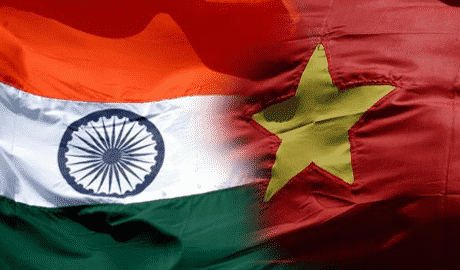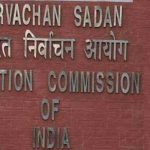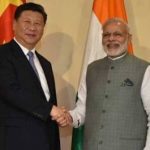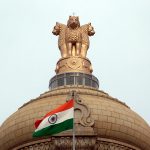A brief historical background of relations
- The relationship between India and Vietnam dates back to over 2000 years when Indian traders traveled to Vietnam for commerce.
- The Republic of India and the Socialist Republic of Vietnam have been exceptionally amiable and cordial since their foundations were laid by Prime Minister Nehru and President Ho Chi Minh more than 50 years ago.
- Both countries have seen common struggle for freedom from foreign rule and national struggle for independence in history.
- Cultural and economic links between India and Vietnam date back to 2nd century.
- India strongly reprimanded U.S. action during the Vietnam War and was also one of the few non-communist countries to assist Vietnam during the Cambodian–Vietnamese War.
- India supported Vietnam’s independence from France and supported unification of Vietnam.
- During the Vietnam War, India showed support to the North, albeit not by conducting military hostilities against the South.
- India and North Vietnam established official diplomatic relations in 1972 and have since maintained friendly relations, especially in wake of Vietnam’s hostile relations with the People’s Republic of China, with which India had some diplomatic disputes.
- India’s thrust under the ‘Act East’ policy combined with Vietnam’s growing engagement within the region and with India has paid rich dividends. Vietnam is an important regional partner in South East Asia.
- India and Vietnam closely cooperate in various regional forums such as ASEAN, East Asia Summit, Mekong Ganga Cooperation, Asia Europe Meeting (ASEM) besides UN and WTO.
- Vietnam is one of the most important pillars of India’s “Look East” policy.
- Vietnam is also an important pillar amongst India’s CLMV (Cambodia, Lao PDR, Myanmar and Viet Nam) partners.
Economic and Commercial Relations; Development Cooperation
- Bilateral trade between both nations saw a boom in year 2010 when the ASEAN-India free trade agreement came into effect.
- The trade was reported US$ 3.917 billion by the end of 2012, with Vietnam exporting $1.7 billion to India in 2012.
- As of 2015 bilateral trade stands at US$ 7 billion & both nations have agreed on a target of US$ 20 billion by 2020.
- However if commodities of temporary import are included, total value of trade was more than US$ 9.2 billion in 2014-15 as per the data from Indian side.
- Exports to Vietnam majorly included clothing, fibres, food items whereas imports mainly included rubber and electronics items and parts.
- India is among the top ten trading partners of Vietnam. Vietnam is ranked as the 28th trading partner of India.
- India is ranked as the 27th largest investor in Vietnam with 111 projects and with the registered capital of $530 million.
Security Relations
- India and Vietnam have built strategic partnerships, including extensive cooperation on developing nuclear power, enhancing regional security and fighting terrorism, transnational crime and drug trafficking.
- India is providing training support for Vietnam’s Kilo-class submarines. India has also offered to train Vietnamese pilots to fly Sukhoi aircraft.
- India is providing a $100 million credit line to Vietnam that allows Vietnam to buy defence equipment from India.
- India is selling Vietnam four large patrol vessels that will enable Vietnam to patrol its waters and Vietnam is also interested in buying BrahMos short range cruise missiles.
- Vietnam has also welcomed Indian Navy ships in their region which would enhance India and Vietnam military relations.
- Vietnam has also welcomed Indian support for a peaceful resolution of the territorial disputes in the South China Sea.
- India being a country striving for peace and development, trying to maintain amicable and cordial relations with most of the counties all over the world, shares and supports developing nations in science, technology, financial aid, medical sector etc.
Recent visit of Indian Prime Minister to Vietnam
- On his way for the G-20 summit meeting Prime Minister Narendra Modi made his inaugural visit to Vietnam to hold talks on increasing issues in key areas like defence, security, counter-terrorism and trade.
- A myriad of issues were discussed and agreements acquiesced upon.
- The following were the major highlights:
→Upgrading the India-Vietnam relationship to a Comprehensive Strategic Partnership, which Hanoi only has with Moscow and Beijing.
→Announcement of a new defence credit line of $ 500 million by India.
→Agreement on cooperation in outer space for peaceful purposes.
→Navy-to-Navy agreement on White Shipping information sharing.
→Agreement for India to assist Vietnam participate in UN Peacekeeping.
→Postgraduate and doctorate scholarships for Buddhist and Sanskrit studies in India.
→Protocol on double taxation avoidance agreement.
South China Sea Issue
- The South China Sea is a major flashpoint in the Asian region.
- Believed to contain precious oil and gas resources China claims it in its entirety and threatens the use of force to assert its territorial and maritime claims.
- India supports freedom of navigation, overflight and unimpeded commerce in the disputed region, based on the United Nations’ Convention on the Law of the Sea (UNCLOS).
- Freedom of navigation and a rules-based maritime order in the South China Sea is also vital to India as about 50% of its trade goes through this sea lane.
- India opposes China’s posture and supports Vietnam’s stance even though for New Delhi, economically, China is much more important than Vietnam, and that is why Vietnam’s top four leaders hailed and thanked India for its principled position on the South China Sea issue.
Future trends and Conclusion
- With or without China, for Vietnam, cooperating with an emerging power like India is beyond doubt of great value.
- But albeit the US and Japan showed a strong support all was in vain to exert pressure on Beijing and thus, how effective can India’s vague support be?
- India’s PM visited Vietnam after 15 years, moreover, multiple Chinese Premiers have toured the nation during the same time. So, we need to catch up there.
- India, the United States and Vietnam share a common interest in preventing China from dominating seaborne trade routes and enforcing territorial claims through coercion.
- However, the percentage of trade with Vietnam is still minimal, making up only about 1.22% of India’s total trade. This is expected to rise in the near future with the realization of an ASEAN-India Free Trade Agreement in services and investment.
- Investors and project developers can explore and look for new opportunities in areas of solar power, wind power, hydropower, bio fuels, and the development of photovoltaics.
- Recent bilateral accomplishments have no doubt been steps in the right direction but there is a need to overcome the bottlenecks to realize maximum gains from this collaboration.











